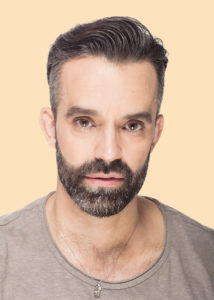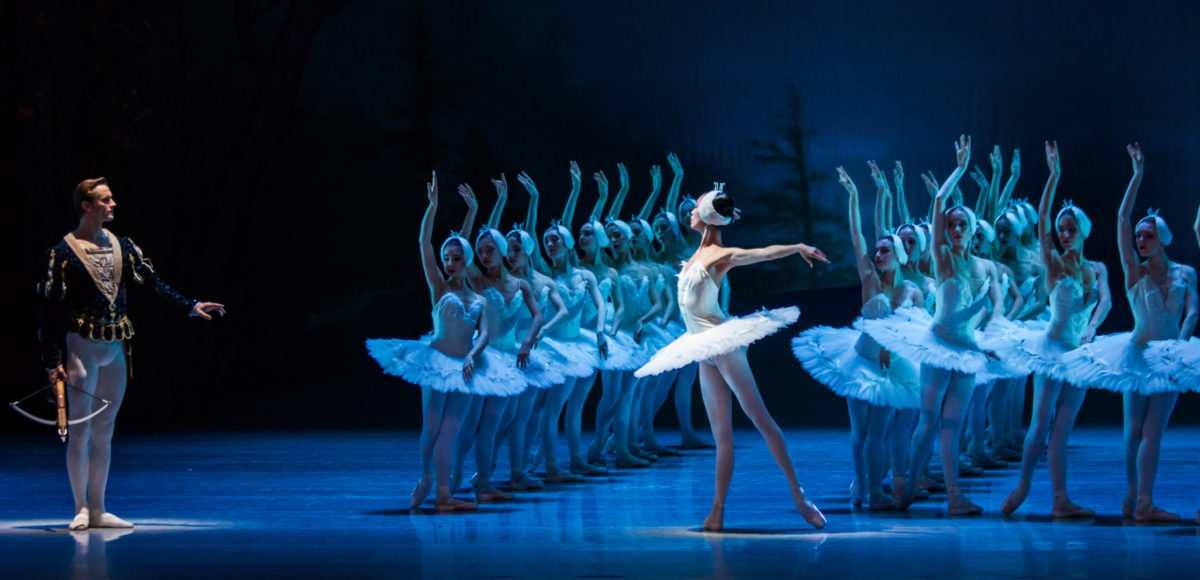Aaron Watkin is a long way from home. The Canadian ex-pat is the artistic director of a major ballet company in Dresden and living and working in one of the famous old centres of culture in central Europe. His company, the Semperoper Ballett will perform Swan Lake at the National Arts Centre next week. In advance he spoke with ARTSFILE.
It indeed a long from from Duncan and the Cowichan Valley of Vancouver Island on Canada’s West Coast.
Watkin’s journey in dance began when he tagged along to an audition for the National Ballet of Canada school.
“I hadn’t been doing ballet,” Watkin said in an interview. “I had been doing tap dancing and I just tagged along with my sister for an audition. We drove into Victoria.”

Aaron Watkin. Photo: Ian Whalen
Watkin caught someone’s eye because the auditioners “looked at my body, did a few exercises and stretched me. They took me to the summer school and after that finished I was accepted into the school in Toronto.”
Those early years at the ballet school were not easy for Watkin. First he was young.
“I went there at 12 which is quite young to move so far from home. It was quite difficult for the first two years. I wasn’t really sure that I liked it and I just missed home a lot.”
“After two years, my mother said, ‘Go back once more and if you really don’t like it you can stay home.’
“That was the year I totally started to get interested in it. I started to like my independence and I liked learning. I had a goal for myself and from then on I was very positive.”
He made friends who were interested in the same things and he got to see the professional dancers and saw what a careerin ballet could be. “That hooked me.”
Once he had gotten over the need to be at home where he lived didn’t matter.
“I had always wanted to be in Europe” He graduated and worked as a dancer at the National Ballet for a season and a half. He got an offer to join the English National Ballet in London and took the job. He got another job with the Dutch National Ballet and spent seven years there. He’s really never looked back. Since 1991 Watkin has been living in overseas, mostly in Europe.
“In Europe, you have a million opportunities. Every city has something. There is so much funding. There is so much culture and people here appreciate the culture in a different way. It’s normal to go to the opera house.”
In Canada, he made an important contact with a rising star in the ballet world, the American William Forsythe.
“I was in my second season in the c0mpany and he came to do a creation. He ended up tusing younger dancers in the piece and he chose me. At that time, he asked me then if I was interested in working with him Frankfurt, Germany.”
Watkin didn’t take the offer then. But by 1997 he was in Frankfurt visiting friends while recuperating from injured foot and reconnected with Forsythe who repeated his offer.
Watkin couldn’t say no. “A famous man was asking me to come, I thought, ‘What the hell is my problem?'”
Working with Forsythe took Watkin into the great theatres of the ballet world such as the Mariinsky in St. Petersburg and the Paris Opera. The work made him a better artist and prepared him for what he calls his real calling.
“I would say that ever since I was young I had a desire to put productions together. I loved teaching and organizing and picking productions and artistic planning.
“When I look back now I realize that ballet wasn’t what I was put here to do. My real passion was to direct a company. Inside I always knew that I wanted to do this but I didn’t know how it would happen.”
After he stopped dancing, Watkin started teaching with many companies. He also started setting Forsythe’s work around the world.
About a dozen years ago he came to Dresden to set a Forsythe program and the intendant of the Semperoper told Forsythe of their search for an artistic director for their ballet company. He suggested Watkin.
Now he is ensconced in the opera working just metres from the world famous Frauenkirche.
“We do major classical full-length works here. We do neo-classical works and new creations. I think that kind of separates our company. It’s rare to find in one company dancers who can move through that diversity relatively comfortably.”
While Watkin doesn’t choreograph new ballets, he does reinterpret the classics such as Swan Lake.
“I have always had a passion to reinvent or reinterpret classical productions. I’ve done five since I’ve been here.” It’s hard work and there isn’t always enough time, he said.
“I would say this: If I am going to present Swan Lake, I’m not going to put in modern sections. I’m sticking to classical style.” But he has recreated much of the work and returned it the musicality of the original score by Tchaikovsky, a copy of which he obtained from the Mariinsky.
“Like with Tap and with works by Forsythe and (George) Balanchine, I loved dancing their work because of their musicality.
“In My Swan Lake, I’ve recreated the whole ballet except for the main pas de deuxs of the Swan and the Prince. Everything is en pointe in the classical style.
“I want it to be authentic.” And he also wants it to be enjoyable for the audience and for the musicians who play the work.
“Normally orchestras hate playing for ballet because the music is not exciting and the tempo is so deathly slow that it’s actually ridiculous.” All so a dancer can do another turn on stage, Watkin added.
“Hopefully, if you see it, you’ll say the momentum takes you through the piece. It’s not dusty and old and long.”
Watkin’s Swan Lake is in two acts and each act is 50 minutes. He says he was influenced by Erik Bruhn of the National Ballet, who also did it in two acts.
At Semperoper Ballett, Watkin is responsible for the artistic vision of company as well as the administrative details such as hiring and planning tours. It’s a “very” fulltime job.
The Semperoper Dresden is a huge operation with more than 800 people working in the complex.
And it is well supported by public funding, Watkin says.
“I know Karen Kain very well. She says she can’t afford to have any production not be a sold out success.” In Dresden, Watkin’s budget is 75 per cent funded by public money.
“I can afford to take risks sometimes.”
Swan Lake
Semperoper Ballett Dresden
Where: Southam Hall
When: Nov. 9-11 at 8 p.m.
Tickets and information: nac-cna.ca







